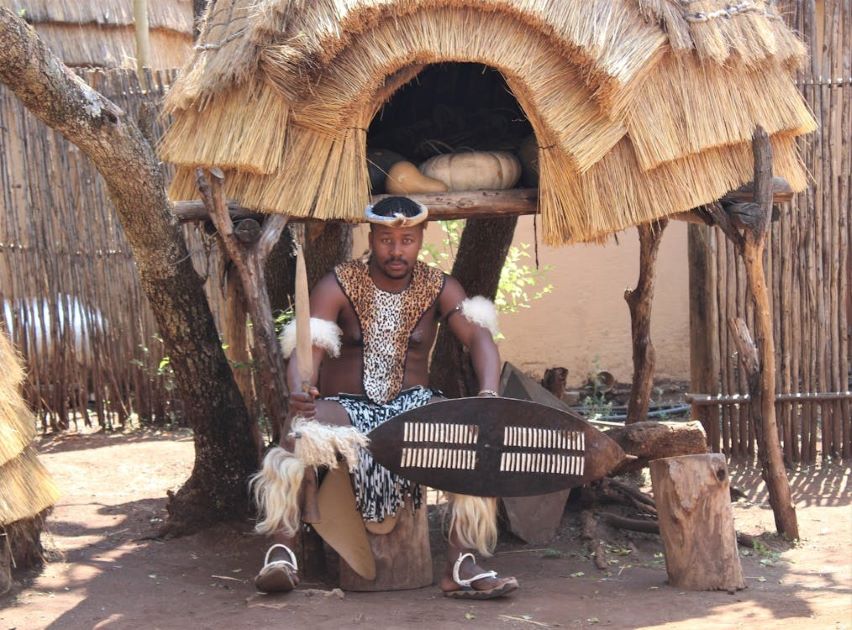African hunts, and hunting in Africa through the ages, have often been shrouded in mystery, with legends and folklores weaving tales of wonder and warning. This blog explores Africa through its historical and cultural lenses, examining the myths and legends one can encounter on the continent, alongside other intriguing facts.
[DYNAMIC-BLOGTABLEOFCONTENT]
African Hunts: Historical and Cultural Perspectives
Hunting in Africa has evolved significantly over millennia, transitioning from a vital means of survival for early human communities to a respected sport and an important conservation tool today.
Early Origins and Survival
In ancient times, hunting was vital for the survival of early African societies. It provided essential resources like food, clothing, and tools. This era forged a deep bond between humans and wildlife, influencing cultural practices and shaping community identities.
Early humans depended on hunting for their daily sustenance. Animals supplied meat for nutrition, hides for clothing and shelter, bones for tools and weapons, and sinews for binding. Knowledge of animal behavior, tracking skills, and effective game hunting techniques were passed down through generations, becoming an integral part of tribal culture.
Spiritual and Cultural Significance
For many early African communities, hunting was more than a means of survival; it held profound spiritual significance. Rituals and ceremonies were often performed to honor the spirits of the animals hunted, seeking their favor and ensuring successful future hunts. Totem animals and clan symbols frequently reflected the fauna most integral to a community’s way of life.
Cultural Significance
Throughout history, hunting has been deeply embedded in the traditions of indigenous African people.
Various tribes and communities developed specialized knowledge of local flora and fauna, honing skills in tracking and hunting specific game. These practices not only ensured community survival but also fostered a profound reverence for the natural world.
Colonial Influence and Trophy Hunting
During the colonial era, hunting in Africa transformed significantly. European colonizers introduced the concept of trophy hunting, where the focus shifted from subsistence to sport. They brought firearms and modern game hunting techniques that supplanted traditional methods, leading to the emergence of trophy hunters in Africa among colonial elites seeking prestige and adventure.
Wealthy adventurers from Europe and America flocked to Africa, drawn by tales of its abundant wildlife and the prestige associated with big game hunting. This period saw the establishment of hunting lodges and safaris, which became symbols of status and adventure.
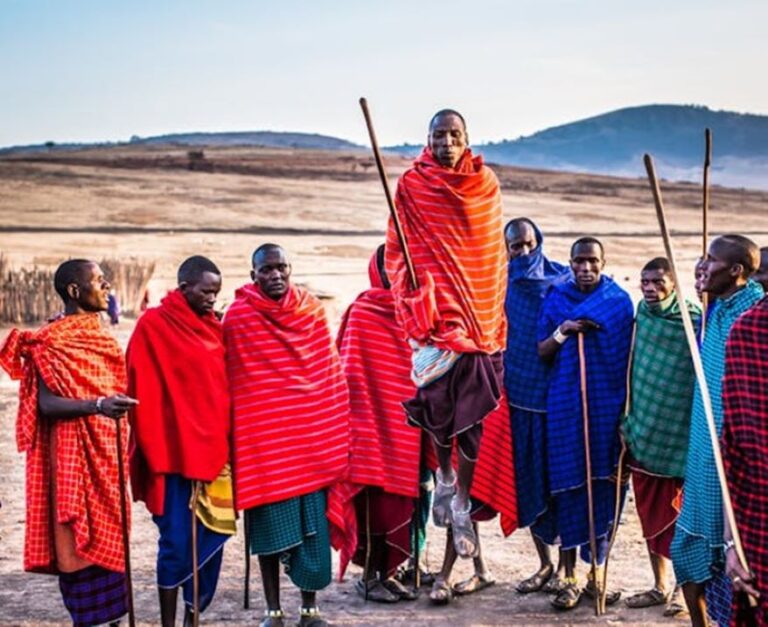
Impact on Wildlife Populations
The influx of trophy hunters in Africa and the exploitation of wildlife for commercial gain led to significant declines in many species’ populations. Unregulated hunting practices and habitat destruction posed severe threats to biodiversity. Iconic species like elephants, lions, and rhinoceroses faced dramatic population decreases, highlighting the need for conservation efforts.
- Conservation and Regulation: By the 20th century, mounting concerns about wildlife conservation prompted governments and conservation organizations to implement regulations. These measures aimed to promote sustainable hunting practices and protect endangered species, balancing the needs of local communities with efforts to conserve Africa’s rich biodiversity.
- Modern Perspectives: Today, an African hunt serves multiple roles. It supports local economies through tourism and game hunting fees, which in turn fund critical conservation initiatives, anti-poaching efforts, and community development projects. Modern African hunts and their participants prioritize ethical and sustainable practices, adhering to stringent guidelines to preserve the continent’s diverse wildlife and cultural heritage.
The evolution of hunting in Africa reflects its deep historical roots in survival and cultural traditions, adapting to contemporary conservation challenges and ethical considerations. This makes it an integral and distinctive aspect of Africa’s natural and cultural legacy.
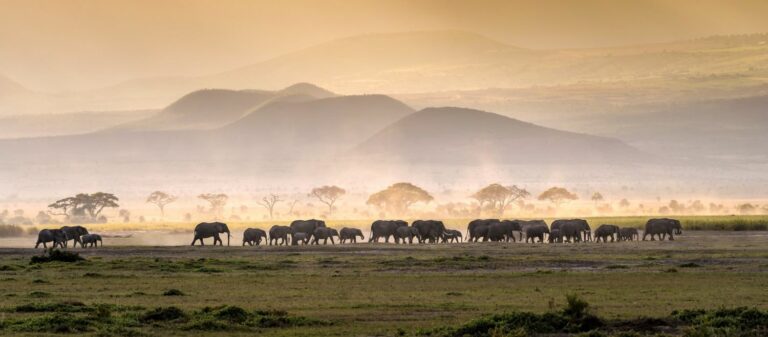
African Myths and Legends of African Hunters
We explore fascinating African myths and legends from various cultures that revolve around game hunting and hunters in the continent.
Across Africa’s diverse cultures, hunting has been woven into rich tapestries of African mythology and folklore, depicting hunters as skilled, brave, and occasionally possessing supernatural abilities. These stories reflect the deep cultural significance of hunting in African societies. Additionally, these tales often celebrate the hunter’s courage, wisdom, and connection to the natural world.
Some of these African Myths include:
- The Heroic Hunter
One common motif is the heroic hunter, a figure of great strength and bravery who protects his community from dangerous animals. These hunters are often depicted as having an almost mystical understanding of the wilderness, able to track animals across vast distances and through challenging terrains. Their exploits are celebrated in songs and stories, passed down through generations.
- The Supernatural Abilities
In many tales, hunters are not just ordinary men but possess supernatural abilities. They might be able to communicate with animals, move invisibly through the forest, or possess extraordinary strength and agility. These abilities often come from a divine source or through magical artifacts bestowed upon them by spirits or deities.
- The Trickster Hunter
Some stories in African mythology feature the trickster hunter, who uses his wit and cleverness to outsmart both animals and adversaries. These tales highlight the hunter’s ingenuity and adaptability, showing that intelligence and resourcefulness are as important as physical prowess.
- The Sacred Hunt
In certain African myths, the hunt itself is a sacred act, imbued with spiritual significance. The hunter might undergo rituals and seek the blessings of ancestors or deities before embarking on a hunt. The successful capture of an animal is seen as a gift from the gods, a sign of favor and fortune.
- Lessons and Morals
These stories often carry moral lessons, teaching values such as respect for nature, the importance of courage and perseverance, and the need for community and cooperation. They serve to reinforce the cultural significance of hunting and the deep respect that early societies had for the natural world.
Through these rich narratives, the hunter is elevated to a legendary status, embodying the virtues and skills that were essential for survival and prosperity in early African societies.
- Anansi the Spider and the Pursuit of Wisdom: West African folklore features Anansi the Spider, renowned for its cunning and resourcefulness. One tale recounts Anansi’s use of hunting skills to capture the elusive wisdom of Nyame, the sky god. This myth underscores the importance of intelligence and skill in hunting, alongside the quest for knowledge.
- Rituals in the Hunter’s Dance: Ritual dances often accompany hunts, honoring ancestral spirits, and seeking blessings for successful hunts. These rhythmic movements and music are believed to attract game and ensure safety and success for hunters.
- The Sacred Traditions of the Maasai: Among the Maasai in East Africa, hunting holds deep spiritual significance. Warriors undertake sacred African hunts to demonstrate bravery and skill, earning respect within their community. These rituals pay homage to ancestors and foster a connection between hunters and the natural world, with ceremonies performed before and after hunts to honor the animal’s spirit.
- Animals as Guardians and Deities: Many African myths feature animals as spiritual guides governing the hunt and protecting hunters. For example, the San people of southern Africa revere the eland antelope’s spirit, believed to ensure successful hunts and provide sustenance. These beliefs promote a profound respect for wildlife and emphasize the hunter’s role as a steward of nature.
- Journeys of Transformation: In various African mythology narratives, hunters undergo transformative experiences or encounters with supernatural beings during their quests. These encounters grant them special abilities or insights, enhancing their hunting skills and cementing their status as revered figures in their communities.
- The Legend of Kintu and the Sacred Cow: In Buganda mythology, Kintu, the first man on earth, was a great hunter who embarked on a journey to win the love of Nambi, the daughter of Ggulu, the sky god. To prove his worth, Kintu had to complete several impossible tasks, including bringing back a sacred cow from Ggulu’s realm. This legend highlights the themes of bravery, perseverance, and the sacred bond between hunters and the animals they pursue.
- The Tale of Shaka and the Great Hunt: Shaka Zulu, the legendary Zulu king, is often depicted in myths as a formidable hunter who possessed extraordinary skills and strength. One story recounts how Shaka, armed with a single spear, defeated a ferocious lion that had been terrorizing his people. This tale symbolizes Shaka’s leadership, courage, and the belief that true hunters are both protectors and providers for their communities.
- The Hunter and the Magical Beasts: Among the Fang people of Gabon, African myths tell of hunters who venture into enchanted forests to capture magical beasts. These creatures, like the Mbulu, are said to possess the power to grant wishes or bestow great fortune upon those who can outwit them. These stories emphasize the themes of cleverness, bravery, and the unpredictable nature of the hunt.
These tales not only entertain and educate but also reinforce cultural values and traditions linked to hunting in Africa. They highlight the spiritual, social, and ethical dimensions of an African hunting safari as more than a practical pursuit, but as a deeply ingrained cultural practice integral to African heritage.
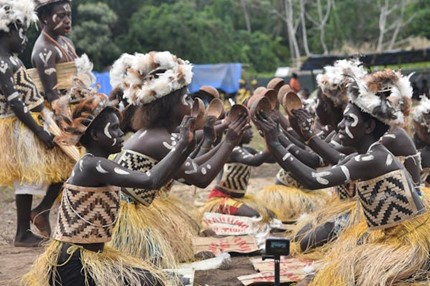
The Role of Traditional Healers in Hunting
As we dive deeper into the uniqueness of Africa, we investigate how traditional healers, and their knowledge of herbs and animals, play a role in hunting practices among African tribes.
Traditional healers, also known as herbalists or medicine men/women, hold a crucial position in the hunting practices of various African tribes. Their deep knowledge of medicinal plants, animals, and spiritual customs not only enhances the practical aspects of game hunting but also enriches the cultural and spiritual dimensions within these communities.
- Herbal Knowledge and Application
Traditional healers possess extensive expertise in local flora, utilizing medicinal plants to aid hunters. These herbs might mask human scent, lure game, or treat injuries sustained during hunts. For instance, aromatic plants can camouflage human odors, enhancing a hunter’s stealth and effectiveness.
- Insights into Animal Behavior and Spiritual Significance
Beyond herbal lore, traditional healers understand animal behavior intimately. Their insights into migration patterns and spiritual connections with specific species guide hunters in tracking and understanding game behavior. This knowledge not only improves the success rates of these hunts but also respects the spiritual balance between humans and wildlife.
- Ceremonies and Spiritual Practices:
African hunts often commence with rituals overseen by traditional healers. These ceremonies seek blessings and protection from ancestral spirits associated with hunting. Through offerings, chants, and dances, healers invoke spiritual aid believed to govern the hunt’s outcome, ensuring harmony with nature.
- Community Leadership and Conservation Ethics:
Traditional healers assume roles as community leaders, preserving cultural heritage and advocating for sustainable hunting practices. They enforce hunting taboos, seasonal restrictions, and conservation efforts to safeguard local biodiversity. This leadership fosters respect for wildlife and promotes ethical hunting practices within the community.
- Adaptation to Modern Challenges:
In contemporary times, traditional healers adapt their practices while preserving ancestral wisdom. They collaborate with conservation organizations and wildlife authorities to integrate modern conservation techniques. This partnership ensures the continuation of cultural traditions while addressing contemporary challenges in wildlife management and biodiversity conservation.
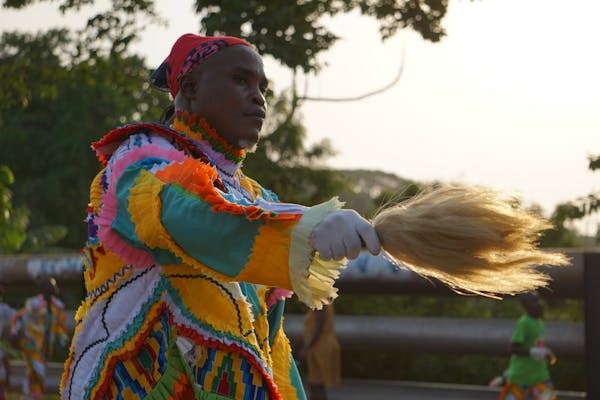
Different tribes across the African continent exhibit unique interactions between traditional healers and game hunting practices:
- The San People of Southern Africa
The San, or Bushmen, are renowned for their hunting skills and deep connection to the land. Their traditional healers, also known as shamans, play an integral role in their hunting expeditions, using trance dances and rituals to connect with the spirit world and seek guidance for the hunt.
- The Maasai of East Africa
The Maasai warriors, or Morans, undergo rigorous training that includes learning from traditional healers about herbal medicines and animal behaviors. These healers are vital in preparing young warriors for the challenges of hunting in Africa and protecting their livestock from predators.
- The Pygmies of Central Africa
Pygmy tribes, such as the Aka and Mbuti, rely heavily on the forest for sustenance. Their traditional healers possess extensive botanical knowledge, which they use to aid hunters in tracking and trapping game, as well as treating any injuries sustained in the dense jungle.
The pivotal role of traditional healers in African hunting traditions underscores the fusion of ecological knowledge, spiritual beliefs, and community stewardship. Their contributions not only sustain traditional practices but also promote harmony between human activities and the natural world, preserving cultural identity and environmental integrity across generations.
Author: R. du Toit
